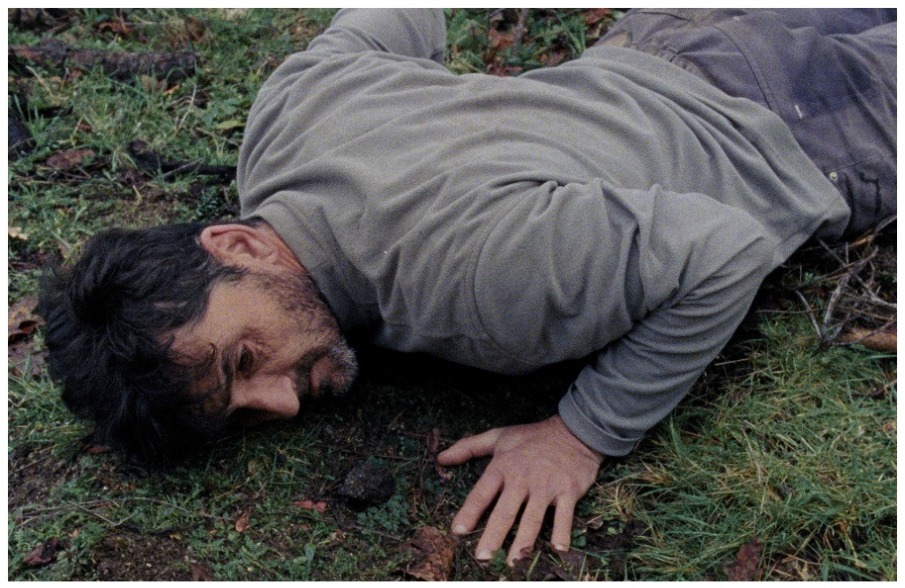Béla Tarr (1955–2026): Time, Cinema and the Ethics of Attention
Béla Tarr died on 6 January 2026. Across nine films, he transformed time into an ethical stance and cinema into an act of resistance.
Listeners:
Top listeners:
 play_arrow
play_arrow
ENGLISH Channel 01 If English is your language, or a language you understand, THIS IS YOUR CHANNEL !
 play_arrow
play_arrow
ITALIAN Channel 02 Se l’italiano è la tua lingua, o una lingua che conosci, QUESTO È IL TUO CANALE!
 play_arrow
play_arrow
EXTRA Channel 03 FRED Film Radio channel used to broadcast press conferences, seminars, workshops, master classes, etc.
 play_arrow
play_arrow
GERMAN Channel 04 Wenn Ihre Sprache Deutsch ist, oder Sie diese Sprache verstehen, dann ist das IHR KANAL !
 play_arrow
play_arrow
POLISH Channel 05
 play_arrow
play_arrow
SPANISH Channel 06 Si tu idioma es el español, o es un idioma que conoces, ¡ESTE ES TU CANAL!
 play_arrow
play_arrow
FRENCH Channel 07 Si votre langue maternelle est le français, ou si vous le comprenez, VOICI VOTRE CHAINE !
 play_arrow
play_arrow
PORTUGUESE Channel 08
 play_arrow
play_arrow
ROMANIAN Channel 09 Dacă vorbiţi sau înţelegeţi limba română, ACESTA ESTE CANALUL DUMNEAVOASTRĂ!
 play_arrow
play_arrow
SLOVENIAN Channel 10
 play_arrow
play_arrow
ENTERTAINMENT Channel 11 FRED Film Radio Channel used to broadcast music and live shows from Film Festivals.
 play_arrow
play_arrow
BULGARIAN Channel 16 Ако българският е вашият роден език, или го разбирате, ТОВА Е ВАШИЯТ КАНАЛ !
 play_arrow
play_arrow
CROATIAN Channel 17 Ako je hrvatski tvoj jezik, ili ga jednostavno razumiješ, OVO JE TVOJ KANAL!
 play_arrow
play_arrow
LATVIAN Channel 18
 play_arrow
play_arrow
DANISH Channel 19
 play_arrow
play_arrow
HUNGARIAN Channel 20
 play_arrow
play_arrow
DUTCH Channel 21
 play_arrow
play_arrow
GREEK Channel 22
 play_arrow
play_arrow
CZECH Channel 23
 play_arrow
play_arrow
LITHUANIAN Channel 24
 play_arrow
play_arrow
SLOVAK Channel 25
 play_arrow
play_arrow
ICELANDIC Channel 26 Ef þú talar, eða skilur íslensku, er ÞETTA RÁSIN ÞÍN !
 play_arrow
play_arrow
INDUSTRY Channel 27 FRED Film Radio channel completely dedicated to industry professionals.
 play_arrow
play_arrow
EDUCATION Channel 28 FRED Film Radio channel completely dedicated to film literacy.
 play_arrow
play_arrow
SARDU Channel 29 Si su sardu est sa limba tua, custu est su canale chi ti deghet!
 play_arrow
play_arrow
“Conversation with” at the 20th Marrakech IFF, interview with actor Willem Dafoe Bénédicte Prot

PODCAST| Matt Micucci interviews Ico Costa, director of the film Alva.
An interview with Ico Costa, director of Alva, which had its world premiere in the Bright Future strand of the 2019 International Film Festival Rotterdam. The protagonist of the film is a man who lives in the Portuguese countryside, commits a crime and goes back to the hills. Little is known about the whys and the hows, but as Costa tells us here, he wanted to get inside the man’s head. The film in fact focuses on him, and in this interview we also talk about his choice of filming in 16mm, using nonprofessional actors and what type of an experience he would like or expect his audience to have when watching Alva.
Alva: Henrique is a terse Portuguese smallholder who lives out in the hills, far from civilisation. We realise something is wrong in his life when occasional passers-by ask if there is any news about his daughters. The next day, he drives to a nearby village, follows someone and does something terrible. He then flees back to the hills. The almost entirely dialogue-free second half of the film focuses on Henrique as he hides out. We occasionally hear voices, or a helicopter swoops overhead. In the end, he returns to the village. Ico Costa explicitly uses an elliptic narrative structure, to allow viewers to form a man from the clay he puts in front of them. Who is Henrique? Can his deed be understood? Is he telling the truth when he says he didn’t want to hurt anyone? In the meantime, almost incidentally, the stunning beauty of the landscape passes by. Henrique washes himself in the waters of a river – a river called Alva.
Written by: fredfilmradio
Alva Ico Costa International Film Festival Rotterdam Matt Micucci
Film
AlvaFestival
Rotterdam Film FestivalNo related posts.
Béla Tarr died on 6 January 2026. Across nine films, he transformed time into an ethical stance and cinema into an act of resistance.
An exclusive interview with Simone Gandolfo, President of Valle d’Aosta Film Commission, on Focus London 2025 and why the Alpine region is a hidden gem for film and TV producers.
todayDecember 12, 2025 5
Wim Wenders will preside over the International Jury of the 76th Berlinale, overseeing the selection of the Golden and Silver Bears in February 2026.
todayDecember 12, 2025 2
Jacopo Chessa, director of Veneto Film Commission, on Focus London 2025 and a standout year spanning Cannes, Venice and global productions.





© 2023 Emerald Clear Ltd - all rights reserved.